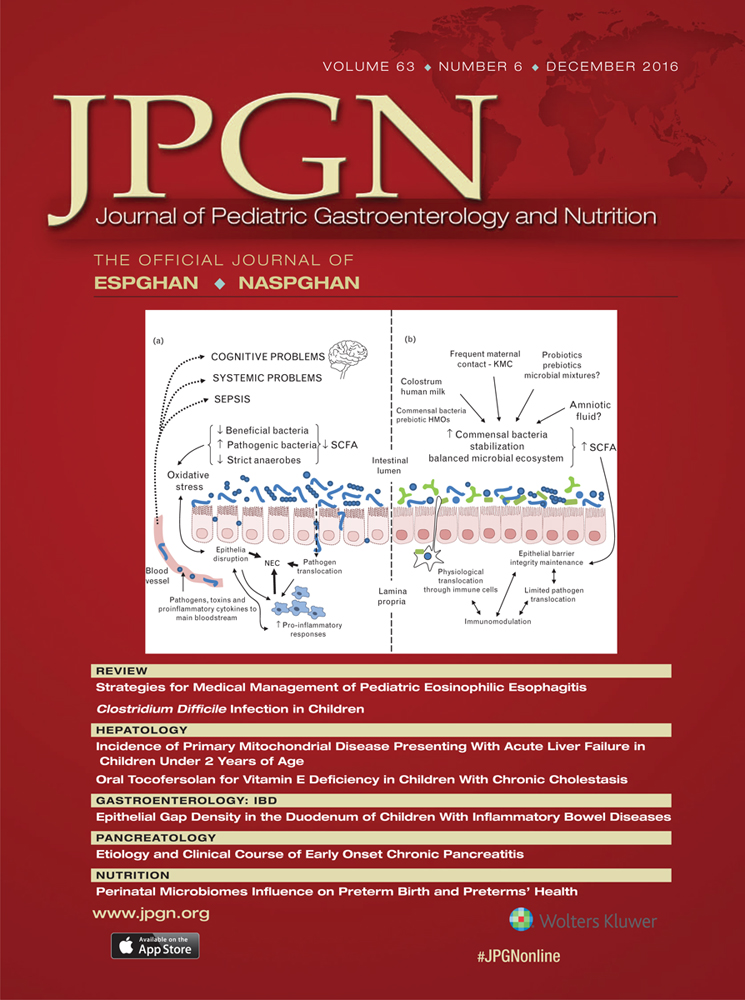Screening for Psychosocial and Family Risk in Pediatric Gastrointestinal Disorders
Supplemental digital content is available for this article. Direct URL citations appear in the printed text, and links to the digital files are provided in the HTML text of this article on the journal's Web site (www.jpgn.org).
This study was funded by a grant from the Academic Enrichment Fund of Seattle Children's Hospital.
The authors report no conflicts of interest.
ABSTRACT
Objectives:
Screening for psychosocial comorbidity is recommended for pediatric patients presenting at an initial gastroenterology (GI) outpatient consultation. We developed and evaluated the psychometric properties of the GI Screener to address the need for a screening tool specific to pediatric GI patients.
Methods:
128 patients (8–18 years old, 63% female) and 126 parents completed age-specific versions of the GI Screener and 3 validated psychosocial comparison instruments (The Behavioral Assessment System for Children, The Functional Disability Inventory, The General Functioning scale of the Family Assessment Device) at their initial GI consultation. (30%) of families repeated the measures 2 weeks later. We identified GI Screener content domains and retained items using exploratory factor analysis. We evaluated internal consistency, construct validity, cross-informant reliability, and test-retest reliability of the trimmed measures.
Results:
Exploratory factor analysis identified 2 factors in both the parent and child scales: Symptom Impact and Emotional Functioning. Internal consistency estimates for the trimmed scales were good (Cronbach's alpha >0.75) for both Child and Parent scales. We found that the GI Screener for both patient and parents had good construct validity. Cross-informant reliability between Parent and Child scales at baseline had an estimated correlation of 0.56, while intra class correlation coefficients between baseline and 2-week scores showed high test-retest reliability (>0.7).
Conclusions:
The GI Screener is a brief, valid and reliable measure that can aid in identifying families who are at high risk for psychosocial comorbidity facilitating the targeted delivery of psychosocial intervention and efficient use of health care resources.




